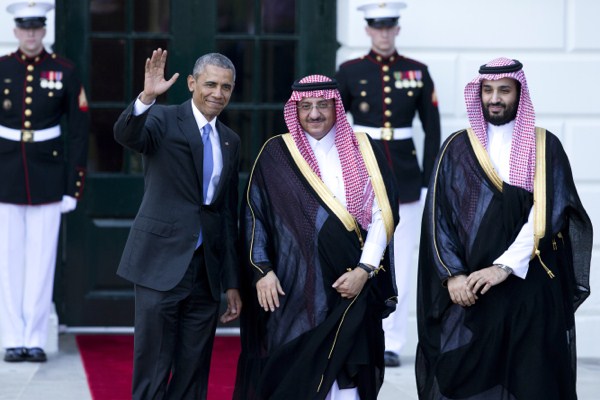Among the many challenges facing President Barack Obama and U.S. officials meeting with Gulf Arab leaders this week, one has abruptly climbed to near the top of the agenda: taking the measure of the rising star of the Saudi firmament, King Salman’s son Prince Mohammed bin Salman.
When the delegates from the Gulf Cooperation Council (GCC)—which comprises Saudi Arabia, Qatar, the United Arab Emirates, Bahrain, Kuwait and Oman—gather at the presidential retreat of Camp David for the already troubled summit, U.S. officials will channel a significant portion of their energy toward Prince Mohammed. They will be hoping to develop ties and get an accurate assessment of a new player in the Middle East, a very young man who has suddenly grown enormously powerful and extraordinarily influential.
The gathering in Maryland became roiled in diplomatic turbulence even before it began when King Salman stunned the White House with a last-minute announcement that he would not attend the summit. The Saudis also very likely pressured Bahrain’s king, whose crown they saved, to stay away, while the leaders of the UAE and Oman are staying home due to health reasons. As a result, only two heads of state—the emirs of Qatar and Kuwait—will be attending what was meant to be a historic full summit between the U.S. and its principal Arab allies.

